Debt Collection Agency in Turkey - No Win, No Fee
Your claims are handled exclusively by ARS Consultancy, our licensed Turkish debt collection partner (alacak tahsilati ajansi) with 14+ years of expertise and an 83% success rate.

Why Choose Debitura for Debt Collection in Turkey

Fast, simple and risk-free debt collection in Turkey
Debitura connects you with ARS Consultancy, an Istanbul-based debt collection agency with 14+ years of expertise, coverage across all 81 Turkish provinces, and membership in FENCA and the League International for Creditors.
- Risk-free: Pay only when we recover your money.
- Quick setup: Submit invoices in a few clicks.
- Real-time tracking: Monitor progress live in one portal.
- Local expertise: Licensed Turkish professionals handle everything.

Getting started with debt collection in Turkey
- Upload your claim via Debitura's dashboard in under 2 minutes - include invoice details and debtor information.
- ARS Consultancy takes over and contacts your debtor within 24 hours using their proven ARSinkaso program.
- Track progress in real time through your dashboard and receive updates until your debt is recovered.
Already using an ERP system? Debitura integrates with major platforms for seamless claim submission.


Transparent, success-based pricing
With Debitura's No Win, No Fee model, you only pay when your money is recovered. There are no upfront costs, no subscriptions, and no hidden charges.
- Zero upfront fees: Start your claim at no cost.
- Success-based: Pay only when we collect.
- Competitive rates: Tiered pricing based on claim value.
- Full transparency: No hidden costs or surprises.

Fast, simple and risk-free debt collection in Turkey
Debitura connects you with ARS Consultancy, an Istanbul-based debt collection agency with 14+ years of expertise, coverage across all 81 Turkish provinces, and membership in FENCA and the League International for Creditors.
- Risk-free: Pay only when we recover your money.
- Quick setup: Submit invoices in a few clicks.
- Real-time tracking: Monitor progress live in one portal.
- Local expertise: Licensed Turkish professionals handle everything.
The ultimate guide about debt collection in Turkey (2026 Version)
Why you can trust this guide
At Debitura, we uphold the highest standards of impartiality and precision to bring you comprehensive guides on international debt collection. Our editorial team boasts over a decade of specialized experience in this domain.
Questions or feedback? Email us at contact@debitura.com — we update this guide based on your input.
Debitura By the Numbers:
- 10+ years focused on international debt collection
- 100+ local attorneys in our partner network
- $100M+ recovered for clients in the last 18 months
- 4.9/5 average rating from 621 reviews
Expert-led, locally validated
Written by Robin Tam (16 years in global B2B debt recovery). Every page is reviewed by top local attorneys to ensure legal accuracy and practical steps you can use.
Contributing local experts:
Last updated:
Untangling the intricacies of Turkey's debt collection can seem overwhelming. With Debitura, however, local expertise meets international breadth to simplify the process. This guide is your all-inclusive resource, preparing you for effective debt recovery in Turkey.
Deciphering the Key Roles in Turkish Debt Recovery
Navigating the complex sphere of debt recovery in Turkey necessitates a thorough understanding of the key players involved. This includes the debt collection agencies, bailiffs, and lawyers; all have specific roles, working together in a concerted effort to adhere to Turkey's rigid legal framework while recovering debts.
Debt Collection Agencies in Turkey
In Turkey, debt collection agencies serve as pivotal intermediaries in the recovery of overdue payments, facilitating a smoother process for both creditors and debtors. These agencies step in when businesses find it challenging to recover debts through internal procedures, bringing expertise in negotiation and knowledge of local laws to the table. Their primary role is to manage receivables on behalf of creditors, aiming for resolution through mediation before escalating to legal proceedings, which can be both costly and time-consuming. Governed by specific regulations, these agencies must register with the trade registry and operate within the boundaries set by Turkish law, ensuring practices are fair and respectful of debtor's rights. This specialized approach streamlines the collection process, ultimately benefiting all parties involved by aiming for amicable settlements and maintaining professional relationships.
Debt Collection Lawyers in Turkey
In Turkey, navigating the complexities of debt collection can often require the expertise of a debt collection lawyer. These legal professionals step in when amicable collection efforts have failed, and creditors need to pursue legal avenues to recover their dues. Lawyers play a pivotal role in the debt collection process by advising creditors on the feasibility of recovering debts, drafting and sending formal demand letters, and representing creditors in court proceedings if necessary.
Engaging a lawyer becomes essential when it's clear that the debtor is unwilling to fulfill their financial obligations voluntarily. Before reaching out to a lawyer, creditors are advised to exhaust all pre-legal collection efforts, including direct communication and negotiation attempts. Once these avenues have been explored, a lawyer can initiate formal legal action, which may involve filing a lawsuit or executing court judgments, among other legal procedures.
The activities of debt collection lawyers are regulated by Turkish law, ensuring that they adhere to ethical standards and legal procedures throughout the collection process. While lawyers are invaluable for their legal expertise, it's important to remember that their scope is primarily focused on legal actions for debt recovery. They typically do not engage in non-legal debt collection activities, such as making phone calls to debtors or sending informal reminders. Taking the step to involve a lawyer signals a transition from negotiation to enforcement, making it a critical decision in the debt collection process.
The Role of Bailiffs in Turkey
In Turkey, bailiffs, known locally as icra memuru, are central to the debt collection process, especially when formal legal proceedings are necessary. These court-appointed officials step in when negotiations and informal debt collection efforts have failed, marking the transition to a more serious phase in the attempt to recover outstanding debts.
Bailiffs in Turkey are primarily involved in the enforcement of court decisions regarding debt collection. This includes actions such as asset seizure (haciz) to satisfy outstanding debts, serving legal notices to debtors, and overseeing the sale of seized assets. Their involvement ensures that the debt collection process follows legal protocols, safeguarding the rights of both creditors and debtors.
The legal framework governing bailiffs' operations in Turkey includes the Enforcement and Bankruptcy Law (Law No. 2004), outlining procedures from initiating execution proceedings to the seizure and sale of assets. While bailiffs have the authority to enact these measures, their actions are constrained by laws designed to prevent abuse and protect parties' rights. Before involving a bailiff, creditors must obtain a court judgment or have a direct ground for enforcement, such as a promissory note.
Bailiffs' integral role in the legal debt collection process underscores the importance of adhering to regulatory guidelines, ensuring that debt recovery in Turkey is conducted ethically and lawfully.
Understanding Debt Collection Legalities in Turkey
Navigating debt recovery in Turkey mandates a deep grasp of its intricate laws. Adherence to these regulations not only aids efficient debt collection but also strengthens the principle of fair procedure, crucial for fostering trust and integrity in commercial transactions.
The Civil Court System in Turkey
Turkey's civil court system is central to resolving legal disputes, including debt collection cases.
- District Courts (Ilce Mahkemeleri): The first level of the civil court system, handling minor cases.
- First Instance Courts (Asliye Mahkemeleri): Handle a broader range of civil cases, including more significant disputes.
- Regional Courts of Justice (Bolge Adliye Mahkemeleri): Act as appellate courts for decisions rendered by the first instance courts.
- High Court of Appeals (Yargitay): The highest court in the civil system, reviewing final appeals on civil case judgments.
Understanding the hierarchy and specific roles of each court is crucial for navigating the legal process effectively. For debt collection cases in Turkey, the court system offers a structured pathway for resolution, starting from district or first instance courts, with potential progression to higher levels for appeals. It's important for creditors to be aware of the relevant court for initiating a case, as this can significantly affect the case's progress and outcome.
Key Debt Collection Laws and Legislation in Turkey
Turkey's legal framework for debt collection is comprehensive and multifaceted, encompassing various laws and regulations to guide creditors through the recovery process.
- Turkish Code of Obligations (Law No. 6098): This law lays the foundations for contractual relationships and obligations, including those related to debts and their recovery.
- Enforcement and Bankruptcy Law (Law No. 2004): Governs the enforcement processes for collecting debts, including bankruptcy proceedings.
- Consumer Protection Law (Law No. 6502): Provides protections for consumers in transactions, including those involving credit, and outlines restrictions on debt collection practices.
- Law on the Protection of Personal Data (Law No. 6698): Regulates the handling of debtors' personal data during collection processes to ensure privacy rights are maintained.
- Regulation on Receivables Management Companies: Specifies the operational and regulatory framework for debt collection agencies, including licensing requirements and operational guidelines.
Understanding these key laws is vital for anyone engaged in debt collection in Turkey, ensuring that operations are legally compliant and effective. Additionally, it's important to stay informed about changes and updates to these laws, as the Turkish legal landscape continues to evolve. Engagement with trusted legal advisors or debt collection specialists like Debitura can provide valuable guidance and support through the complex recovery process.
Consumer Protection and Fair Debt Collection Practices in Turkey
Turkey is committed to ensuring that debt collection practices are fair and respectful of consumer rights, instilling confidence in both creditors and debtors alike.
- Written Form Requirement for Consumer Loan Agreements: Governed by the Consumer Protection Law No. 6502, these must be in written form, providing clarity and transparency.
- Limits on Insurance for Loans: It's illegal to mandate insurance for a loan without the consumer's explicit consent, ensuring fairness in lending practices.
- Prohibition of Tied Selling: Linking consumer loans to the purchase of other financial products or services is prohibited, protecting consumers from undue pressure.
- Restrictions on Fees and Charges: The law limits the fees that can be charged, promoting transparency and preventing exploitative practices.
- Right of Withdrawal: Consumers have a 14-day period to withdraw from a loan contract without penalty, providing a safety net.
- Recent Legal Amendments: Significant updates like Law No. 7392 enhance consumer protections, including the option to withdraw from loan agreements and stricter conditions around insurance.
In summary, Turkey's legal framework provides robust protections for consumers in the realm of debt collection, with laws that promote fairness, transparency, and respect for consumer rights. These regulations help create a balanced and just system that benefits both creditors and consumers, showcasing Turkey's commitment to upholding high standards in financial transactions.
Exploring Amicable Debt Collection in Turkey
Amicable or pre-legal debt collection in Turkey signifies settling dues without a court's interference. It is typically entrusted to a debt collection agency, offering a quicker and straightforward alternative to legal procedures. We provide a detailed overview of the tactics, steps, and significant points in managing this process effectively.
- Legal Framework: Offers a balanced approach for creditor-debtor dialogue without immediate legal action.
- Initial Communication: Involves directly contacting the debtor with notices on the outstanding debts.
- Debt Collection Agencies: Specialize in negotiation, operating within legal boundaries to recover debts amicably.
- Communication Regulation: Turkish laws define the fair practice and limits for collector-debtor communications.
- Alternative Dispute Resolution: Offers mediation or arbitration as cost-effective alternatives to court proceedings.
- Transition to Judicial: If amicable recovery fails, the process may escalate to court for acquiring a judgment.
- Essential Documentation: Contracts, invoices, and communication records are crucial for positioning in negotiations.
- Fees and Interest Rates: Legally permissible costs can be added to the debt, including interest and legal fees.
- Statutory Interest Rates: Significant rates for late payments impacting different types of debts in Turkey.
- Documentation of Efforts: Detailed records of all recovery attempts can support further judicial proceedings.
Exploring Amicable Debt Recovery in Turkey
Harmonious debt recovery embraces a strategy that focuses on relationship-building and mutual respect in the process of reclaiming owed funds. This approach leans on understanding and negotiation rather than conflict, striving to keep a constructive relationship between the creditor and the debtor. It seeks resolutions that are considerate of the debtor's circumstances while also securing the creditor's financial retrieval. This conciliatory method is best suited for straightforward claims, sidestepping the expenses and complications associated with legal proceedings.
It's advisable to pursue harmonious debt recovery first, except in cases where your claim is contentious or entangled in intricate legal matters.
The Integral Role of Collection Agencies in Harmonious Debt Recovery in Turkey
In the realm of harmonious debt recovery, collection agencies play a crucial role, particularly when creditors are either too busy or lack the necessary know-how for effective debt collection. Firms such as Debitura provide tailored services that begin with accurately pinpointing debts and debtors, then moving on to establish contact via reminders or official notifications. Their neutral perspective, free from emotional involvement, frequently results in more effective debt retrieval through unbiased, expert mediation.
The Benefits of Choosing Harmonious Debt Settlement
Selecting a harmonious route for debt collection is advantageous for all involved; creditors avoid the expenses associated with legal proceedings and maintain important business connections thanks to the method's courteous nature. Debtors are presented with repayment options that are more feasible, alleviating monetary stress and promoting a positive perception of the creditor. This method promotes dignity and empathy, fostering an ideal setting for meeting financial commitments.
Shifting from Harmonious to Legal Debt Recovery
Although harmonious debt recovery has numerous advantages, there are instances where legal action becomes a necessary consideration. Indicators for transitioning to legal recovery include lack of communication, continuous failure to uphold payment agreements, or intentional avoidance by the debtor. Opting for legal recourse should be a thoughtfully made decision of last resort, considering the substantial financial and temporal costs involved in legal processes, and is generally regarded as a step to take after all harmonious avenues have been explored.
Understanding Turkey's Judicial Debt Collection Process
In cases where the amicable recovery of a claim fails, the scenario advances to judicial or legal debt collection. This significant step involves securing a court order and the participation of bailiffs to enforce claims. Our subsequent section navigates the particulars of Turkey's judicial debt collection approach, underscoring the necessity of legal aid beyond small claims.
- Jurisdiction and Thresholds: Courts vary by claim size; small claims go to Peace Courts, larger to First Instance Courts.
- Execution Proceedings: Direct debt recovery through Execution Offices can include asset seizure and sale.
- Legal Disputes: Debtors can challenge claims, potentially leading to legal battles and additional court involvement.
- Collection Costs: Includes various legal fees, with the losing party typically bearing these costs.
- Court Orders for Debt: Filing a lawsuit is the initial step; success leads to enforceable judgments for debt repayment.
- Alternative Dispute Resolution: Mediation and arbitration offer paths outside traditional courts, useful in international cases.
- Legal Timeframes: Collection duration varies, influenced by case complexity, debtor actions, and court schedules.
Shifting from Amicable to Judicial Debt Collection in Turkey
In Turkey, the transition from amicable to judicial debt collection methods often becomes necessary when disputes arise, or when there's a clear need for debt enforcement through legal means. Amicable collection relies on negotiation and agreement, while judicial collection involves the courts to enforce payment.
While amicable methods are less confrontational and often quicker, certain conditions—such as the debtor's refusal to pay or disputes over the debt's validity—trigger the need for judicial intervention.
The involvement of legal counsel or representation is not just beneficial but pivotal for navigating the complexities of judicial debt recovery successfully. Experienced legal professionals can help ensure that the creditor's rights are effectively represented and maximized throughout the judicial process.
The Importance of a Formal Judgment in Turkey
A court order, legally termed as a formal judgment, is crucial for the enforcement of debt collection in Turkey. It provides a legally binding decision that the debt is owed and must be paid. Obtaining a court order begins with filing a lawsuit and presenting evidence of the debt, such as contracts or invoices. The importance of a court order in debt recovery cannot be understated—it transforms the debt from a disputed claim into a judicially recognized obligation.
To enforce your claim with a court order, the judgment provides various mechanisms, including seizure of the debtor's assets or garnishment of wages, under Turkish law. This legal backing significantly strengthens the creditor’s position.
Determining the Appropriate Court in Turkey
The choice of court for a debt collection case in Turkey depends on several factors including the claim size and legal complexity. For claims exceeding certain monetary thresholds, the First Instance Civil Courts (Asliye Hukuk Mahkemeleri) are generally the competent authority. For smaller claims, Justice of the Peace Courts (Sulh Hukuk Mahkemeleri) offer a faster resolution due to their design to handle less complex cases.
The specific monetary thresholds that determine the appropriate court are subject to change and can vary based on legal updates. However, the principle of matching the complexity and size of the claim to the suitable court remains a critical consideration in the Turkish legal system. Additional details about the jurisdiction and types of courts can be found on the Istanbul Justice Palace Courts website.
Small Claims Court in Turkey
In the landscape of Turkish jurisprudence, the Small Claims Courtaims to offer a quicker and more cost-effective avenue for resolving disputes involving relatively small amounts of money. This court system is particularly beneficial for creditors seeking efficient debt recovery from delinquent debtors. Below is a comprehensive overview of Small Claims Court in Turkey, detailing its advantages, limitations, and the governing laws and regulations.
Advantages of Small Claims Court
One of the primary advantages of the Small Claims Court is its expedited process. Designed to reduce the backlog of cases in higher courts and to provide swift justice, this court facilitates faster resolutions, thereby significantly shortening the duration creditors have to wait to recover debts. Furthermore, the procedures in Small Claims Courts are more straightforward and less formal, reducing the need for extensive legal representation. This simplicity reduces the overall cost of litigation, making it a cost-effective method for debt recovery.
Small Claims Court Limitations
Despite its benefits, the Small Claims Court system in Turkey is not without limitations. Firstly, the jurisdiction of these courts is capped by a specific monetary threshold. This means that the court can only handle claims falling below a particular amount, which limits the scope of cases it can adjudicate. Additionally, the informality and simplified procedures, while advantageous in reducing costs and complexity, may not be suitable for cases requiring extensive examination of evidence or intricate legal arguments.
Laws / Regulation Governing Small Claims Court
The regulatory framework for Small Claims Courts in Turkey primarily falls under the Civil Procedural Law and the Law on Enforcement and Bankruptcy. The Civil Procedural Law outlines the general principles of civil procedures, including those concerning small claims, ensuring that the process is accessible, straightforward, and just. The Law on Enforcement and Bankruptcy, on the other hand, governs the execution proceedings post-judgment, ensuring that creditors can efficiently enforce court decisions related to debt recovery. Amendments and regulations periodically issued by the Turkish Ministry of Justice further refine these laws, adapting the small claims process to the evolving needs of the legal system and the economic environment.
In conclusion, the Small Claims Court in Turkey represents an essential tool for creditors, especially those involved in international transactions or seeking quick resolution of low-value disputes. By leveraging this judicial avenue, parties can enjoy the benefits of a swift and cost-efficient legal process, albeit within the system's specified limitations. For international creditors or those unfamiliar with the Turkish legal landscape, consultation with a knowledgeable legal professional familiar with local laws and procedures, such as Debitura, remains crucial to navigating the Small Claims Court effectively.
Ordinary Proceedings in Turkey
Understanding the intricacies of ordinary proceedings in Turkey is paramount for international creditors seeking to recover debts efficiently. Unlike small claims procedures, ordinary proceedings are designed to handle more significant, complex disputes. These proceedings provide a structured approach to litigation, encapsulating a variety of cases including those with higher value and those necessitating detailed judicial examination.
One of the advantages of opting for ordinary proceedings over small claims courts lies in their comprehensive nature, allowing for a detailed presentation and examination of cases. This becomes particularly beneficial in situations involving substantial debts or complex legal issues, where the limitations of small claims courts in terms of claim value and procedural depth could hinder a thorough dispute resolution. Furthermore, ordinary proceedings offer the opportunity for more extensive evidence presentation and procedural robustness, leading to potentially more favorable outcomes for creditors.
An essential aspect of ordinary proceedings is the requirement of legal representation. While small claims procedures might allow individuals to represent themselves, ordinary proceedings often necessitate the engagement of legal professionals. This ensures that the case is managed effectively, adhering to procedural rules and leveraging legal expertise to navigate the complexities of Turkish law. The involvement of an attorney not only streamlines the process but also elevates the level of advocacy, significantly impacting the case’s outcome.
Ordinary proceedings in Turkey are governed by a multitude of laws and regulations, including but not limited to the Turkish Code of Civil Procedure and the Turkish Commercial Code. These legislation pieces lay down the rules for procedural conduct, jurisdictional matters, and legal remedies available to creditors. Moreover, the Turkish Execution and Bankruptcy Law plays a crucial role, especially in the context of enforcing judicial decisions post-trial.
For international creditors, navigating ordinary proceedings in Turkey can present challenges due to the legal system's nuances. However, with appropriate legal guidance and a strategic approach, this pathway can offer a robust mechanism for debt recovery. Debitura, with its decade of experience in debt recovery within Turkey, stands by its clients, steering them through the complexities of Turkish law, ensuring the seamless execution of legal proceedings, and maximizing recovery outcomes.
Remember, the choice between small claims and ordinary proceedings should align with the dispute's nature, value, and complexity. Engaging with knowledgeable legal professionals not only clarifies these aspects but also significantly enhances the likelihood of a successful resolution.
Navigating Debt Enforcement in Turkey: A Guide
This section provides a thorough overview of the judicial debt collection phase in Turkey, elucidating the procedure post-court ordering, also referred to as debt enforcement. Guided by official bailiffs, this step gives creditors the power to confiscate debtor's assets to ensure claim fulfilment.
- Debt Enforcement Process: Involves litigation, execution proceedings without requiring a court judgment, and alternative dispute resolutions.
- Authorized Enforcers: Debt enforcement can be initiated by creditors through the Execution Office, utilizing checks, promissory notes, or contractual evidence.
- Court Order Necessity: Not mandatory for all debt enforcement actions if the creditor possesses specific types of evidence or documents.
- Legal Framework: Governed by the Turkish Execution and Bankruptcy Law, detailing procedures for execution proceedings and creditor rights.
- Role of Bailiffs: Critical in executing provisional attachments, notifying debtors, and handling assets seizure, under Law No. 6183.
- Financial Considerations for Creditors: Direct execution proceedings are highlighted as cost-effective and allow a faster recovery process than lawsuits.
- Asset Tracing and Evaluation: Legal framework indirectly assists in uncovering debtor's hidden assets through legal proceedings.
- Debt Enforcement Timeframe: Varies depending on execution method, complexity, and debtor response; specific timeframe is not standardized.
- Asset Seizure Regulations: Specifies assets subject to seizure including movable and immovable properties, with certain exemptions for essential living.
- Salary Attachments: Governed by specific laws allowing the seizure of debtor's receivables and prioritizing claims, ensuring debtor's basic living standards.
The Role of Bailiffs in Debt Enforcement
Debitura's decade of experience highlights the pivotal role of enforcement officers, or bailiffs, in Turkey's debt collection process. These officers carry out several vital responsibilities:
- Implementing provisional attachments to secure receivables through precise documentation and approved procedures.
- Executing payment orders and seizure notifications, with alternatives for public notifications if necessary.
- Carrying out asset investigations by collaborating with both public and private institutions to uncover debtor assets.
- Managing the custody and sale of seized goods to ensure the recovery of debts.
- Facilitating legal actions against those obstructing debt collection or providing false asset declarations.
Debt enforcement thus hinges significantly on the thorough execution of these duties. The efficient coordination between bailiffs and the legal system ensures a streamlined process for creditors to recover outstanding debts.
The Process of Debt Enforcement
In Turkey, the debt enforcement process is meticulously structured to ensure creditors can recover their dues effectively:
- Initiation: Creditors can commence execution proceedings through the Execution Office with or without a prior court judgment.
- Payment Order Issuance: Upon application, a payment order is dispatched to the debtor, allowing a seven-day objection period.
- Asset Seizure: If the debt remains undisputed, or after a court ruling, bailiffs carry out the seizure of debtor assets.
- Sale of Assets: Seized assets are then sold under the supervision of enforcement officers, with proceeds going towards debt settlement.
Efficiency and timely execution are key, highlighting the importance of approaching debt enforcement with a comprehensive understanding and strategic plan.
Legal Framework for Bailiff Operations and Debt Enforcement
Ensuring compliance with Turkey's legal framework is paramount in debt enforcement:
- The Turkish Execution and Bankruptcy Law serves as the foundation, governing procedures for execution proceedings and enforcement officer operations.
- Debt enforcement processes are also subject to ongoing legal amendments, underscoring the necessity for up-to-date legal advice.
- Stringent regulations protect debtor rights, establishing a balanced approach between creditor recovery and debtor protections.
Understanding this legal framework not only ensures adherence to statutory obligations but also maximizes the likelihood of successful debt recovery.
Pre-Enforcement Actions
Strategic preparation before formal enforcement proceedings can significantly impact the outcome:
- Documentation: Having a contract detailing the transaction and obtaining valuable documents like checks can expedite the process.
- Evidence Gathering: Collating evidence proving the debt and debtor's assets prepares the ground for a swifter execution process.
- Legal Consultation: Consulting with legal professionals offers strategic insights, ensuring creditors are well-prepared for potential disputes.
Effective preparation, rooted in Debitura's ample experience, delineates a crucial phase for creditors aiming for successful debt recovery in Turkey.
Recovering Your Claim Through Insolvency Procedures in Turkey
In cases where conventional recourse methods for debt recovery are hampered by debtor insolvency, insolvency procedures may be the final option for creditors. This necessitates an inspection of the debtor's assets, from which creditors extract their claims according to priority rights. This pathway requires careful analysis for creditors, commonly when they possess secured debt with superior priority and anticipate substantial coverage of their claim from the debtor's assets. Timely response is crucial when insolvency proceedings are initiated either by the debtor or another creditor, to ensure prompt filing of your claim and to actively enroll in the proceedings for feasible debt recovery. This guide section offers in-depth assistance for creditors traversing the complexities of insolvency procedures in Turkey.
- Legal Framework: Governed by the Turkish Commercial Code and Execution and Bankruptcy Law.
- Filing Requirements: Conditions include debtor's insolvency, fleeing, or fraudulent transactions to harm creditors.
- Priority Rules: Secured creditors usually have precedence over unsecured creditors during asset distribution.
- Filing Costs: Fees calculated based on ordinary creditors' claims, with rates varying from 0.1% to 10%.
- Process Duration: Varies widely depending on the case's complexity and jurisdiction.
- Debt Recovery Chances: Creditors can expect partial or full repayment, but success rates vary.
- Bankruptcy Petition: Process initiated by the debtor or creditors detailing the financial situation.
- Creditors' Rights: Secured creditors have higher priority and more influence in bankruptcy proceedings.
- Post-Bankruptcy Scenarios: Prioritization of claims and asset distribution managed by the insolvency estate.
- Required Documentation: Detailed claim submission including evidence of debt and attempts at collection.
The Legal Framework for Insolvency Procedures in Turkey
Based on our decade of experience, the insolvency landscape in Turkey is primarily governed by the Turkish Commercial Code and the Execution and Bankruptcy Law. These statutes establish the bedrock for understanding and navigating insolvency proceedings. Here’s a concise look at the overarching legal framework:
- Turkish Commercial Code: sets the stage for commercial operations and, by extension, insolvency processes for traders and commercial entities.
- Execution and Bankruptcy Law: details the specifics of insolvency proceedings, including the criteria for declaring insolvency, the rights and obligations of all parties involved, and the procedural flow from filing to completion of the process.
Both these sources, supplemented by rulings and guidelines from the Turkish Ministry of Justice, create a comprehensive roadmap for navigating insolvency proceedings in Turkey.
Types of Insolvency Proceedings
Insolvency proceedings in Turkey can veer down several paths, depending on the circumstances surrounding the debtor’s financial distress. Understanding these is key to navigating the process:
- Ordinary Bankruptcy Proceedings: Initiated by either the debtor citing inability to meet obligations or creditors proving the debtor's insolvency.
- Special Bankruptcy Proceedings: Focuses on negotiable instruments and transactions, offering a specialized route for those specific cases.
- Direct Bankruptcy Proceedings: Allows creditors to bypass traditional execution attempts, offering a fast-track option under certain conditions like evident insolvency.
Options for preventative measures, such as the postponement of bankruptcy or an agreement of concordat, present strategic avenues for debtors aiming to avoid formal insolvency.
Thresholds and Conditions
The threshold for invoking insolvency procedures in Turkey is multifaceted, balancing the interests of debtors and creditors:
- Insolvency Proof: A creditor must establish the debtor’s financial insolvency through due legal processes or direct conditions.
- Cost Implication: Legal and administrative costs associated with filing and processing bankruptcy applications are determined by regulations and can influence strategies.
- Time Frame: Insolvency proceedings are subject to judicial timelines, yet the complexity of the case and the efficiency of legal apparatuses play a crucial role in the duration.
Understanding these facets is critical for creditors pursuing debt recovery through insolvency proceedings.
Creditor’s Rights and Priorities in Insolvency Proceedings
In the event of insolvency, not all creditors stand on equal footing. The legal framework in Turkey establishes a structured hierarchization of claims:
- Secured vs. Unsecured Creditors: Secured creditors, holding collateral against their claims, generally receive priority over unsecured creditors.
- Insolvency Table and Registration of Claims: Creditors must register their claims, which are then vetted and ranked according to legally defined priorities.
The ranking system ensures an orderly and fair distribution of the debtor’s liquidated assets, underlining the importance of securing claims wherever possible.
Armed with a deep understanding of these procedural landscapes, creditors can navigate the intricate world of insolvency in Turkey, optimizing strategies for debt recovery. For comprehensive guidance and support, partnering with an experienced agency like Debitura, drawing from a decade of firsthand expertise, enhances the probability of favorable outcomes in these complex legal waters.
Find a Local Debt Collection Lawyer
Need court-ready representation? Share your case once and receive up to three proposals from vetted litigation attorneys—free, fast, and with no commitment.
- Verified specialists
- Quotes in 24 h, no hidden fees
- Fair, pre-negotiated rates

Antroya Debt Collection & Law Office is a premier law firm in Sarıyer/Istanbul offering effective Debt Collection services in Turkey, founded in 2005, operating on a "No Cure – No Pay" basis, with a 98% success rate and accolades like the CLLA Bronze Champion.
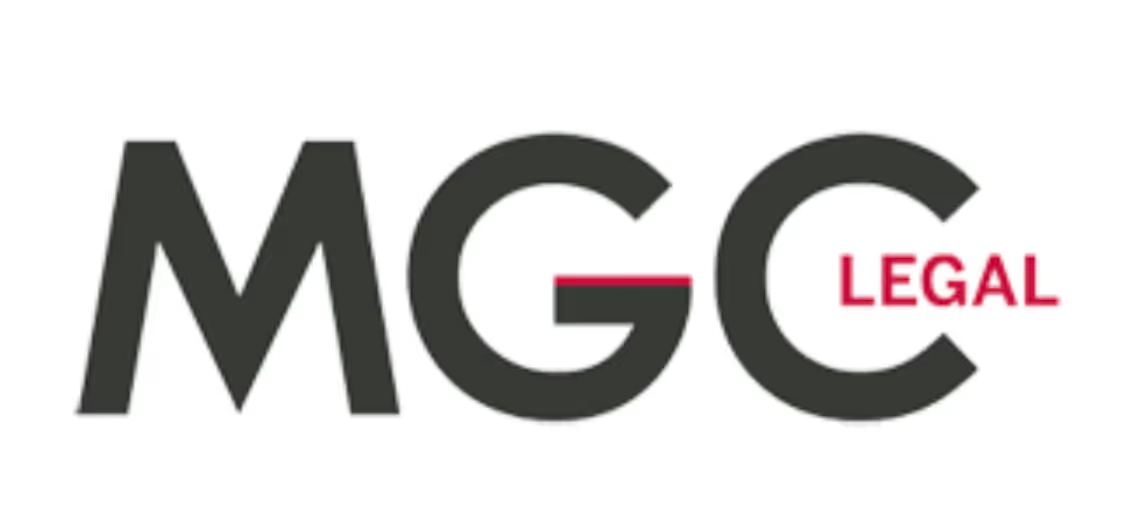
MGC Legal is a premier law firm in Istanbul offering effective Debt Collection services in Turkey, positioning itself as the go-to partner for debt recovery with a foundation in 2013, accolades like Law Firm of the Year, and a presence in 125 countries.

Tenha Law Firm is a premier law firm in Istanbul offering effective Debt Collection services in Turkey, established in 2001, known for its swift, technology-enabled recovery; a member of the Istanbul Bar Association, serving clients with tailored strategies.

Bicak Law Firm is a premier law firm in Ankara offering effective Debt Collection services in Turkey, positioning itself as the go-to partner for debt recovery since 2002, with accolades such as the Clutch Leader Award and membership in the International Law Firms Association, serving countries like Italy and Spain.

HERDEM Attorneys at Law is a premier law firm in Besiktas offering effective Debt Collection services in Turkey, recognized for excellence with accolades such as Leading Lawyer in Aviation Law and memberships in the International and American Bar Associations since 2011.
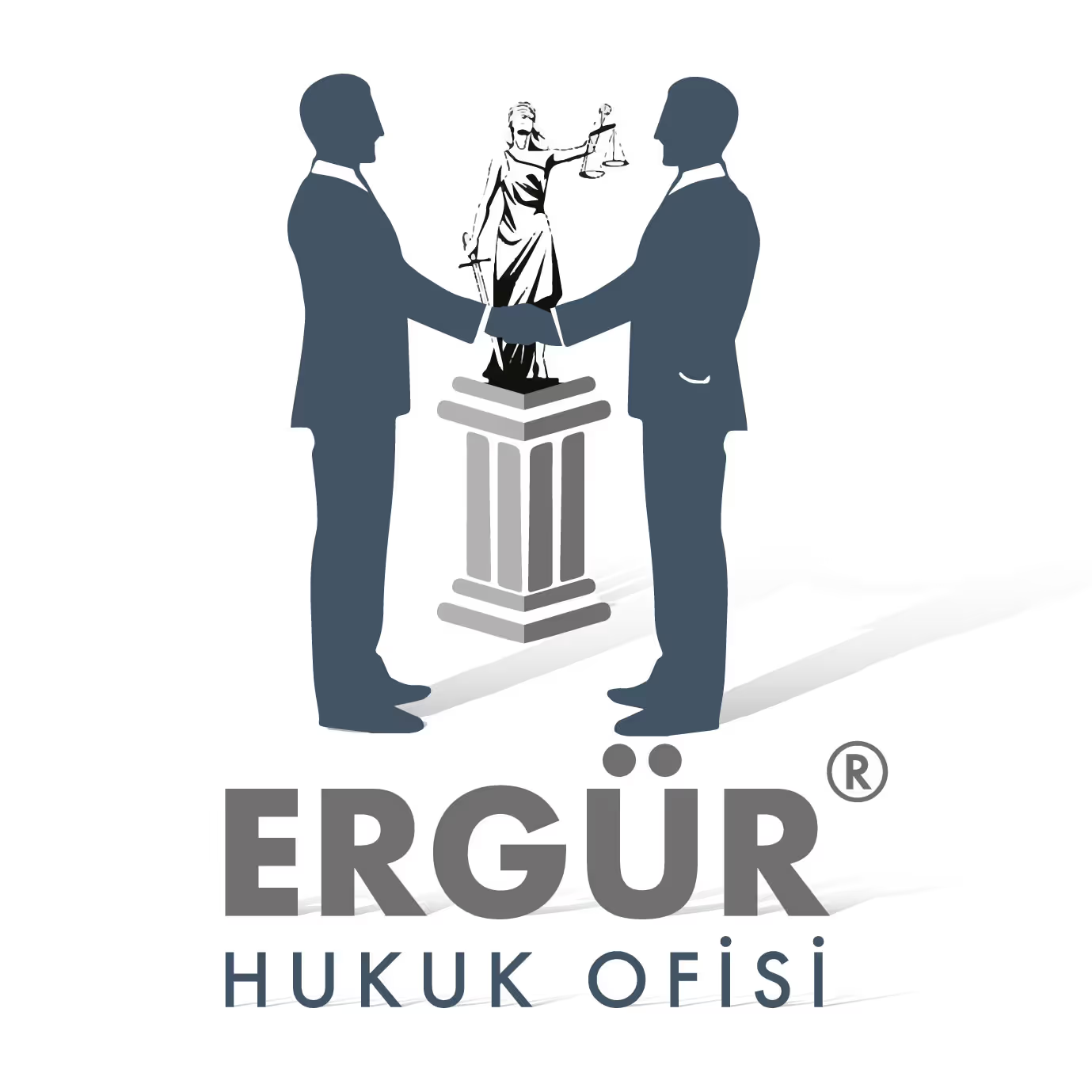
ERGUR LAW FIRM is a premier law firm in Beylikdüzü offering effective Debt Collection services in Türkiye, established in 2006, and is recognized for its client-centered approach, competitive pricing, and memberships in the Istanbul Bar Association and Birleşik Arabuluculuk Merkezi A.Ş.
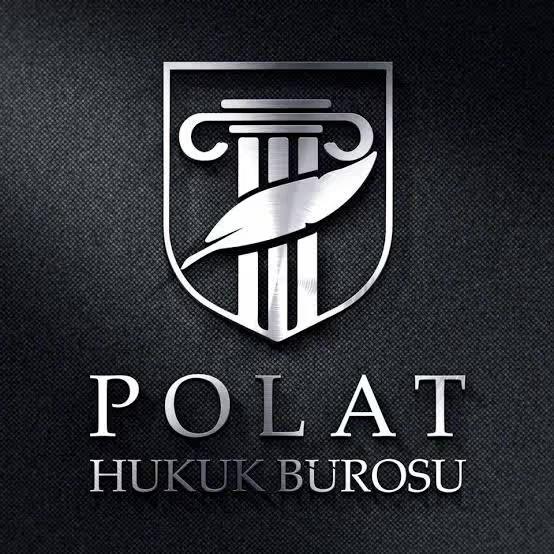
Polat Hukuk Bürosu is a premier law firm in Kocasinan offering effective Debt Collection services in Türkiye, positioning itself as the go-to partner for debt recovery since 2010, with 25 lawyers and memberships in the Kayseri Bar Association and Union of Turkish Bar Associations.
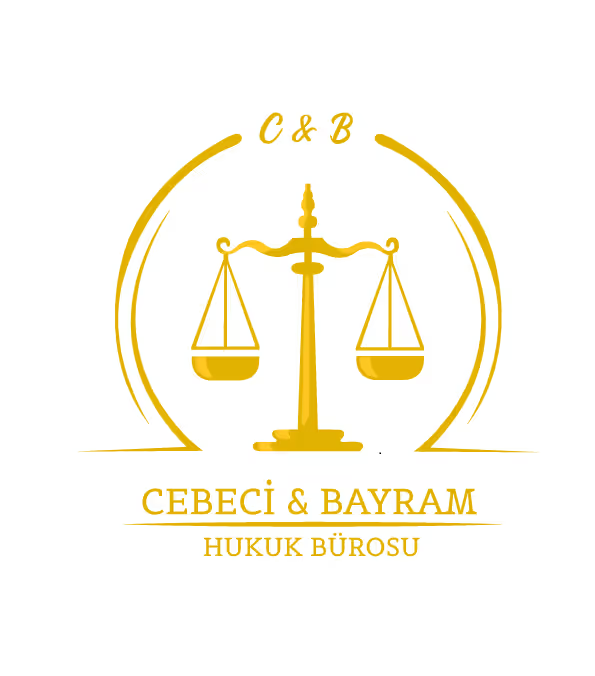
Cebeci Bayram Law Firm is a premier law firm in Istanbul offering effective Debt Collection services in Turkey, positioning itself as the go-to partner for debt recovery since 2019, with competitive rates and memberships in the Istanbul Bar Association and Union of Turkish Bar Associations.

SUNER LAW OFFICE is a premier law firm in Kuşadası offering effective Debt Collection services in Turkey, positioning itself as the go-to partner with a foundation in 2015, serving both local and foreign clients with innovative legal solutions.
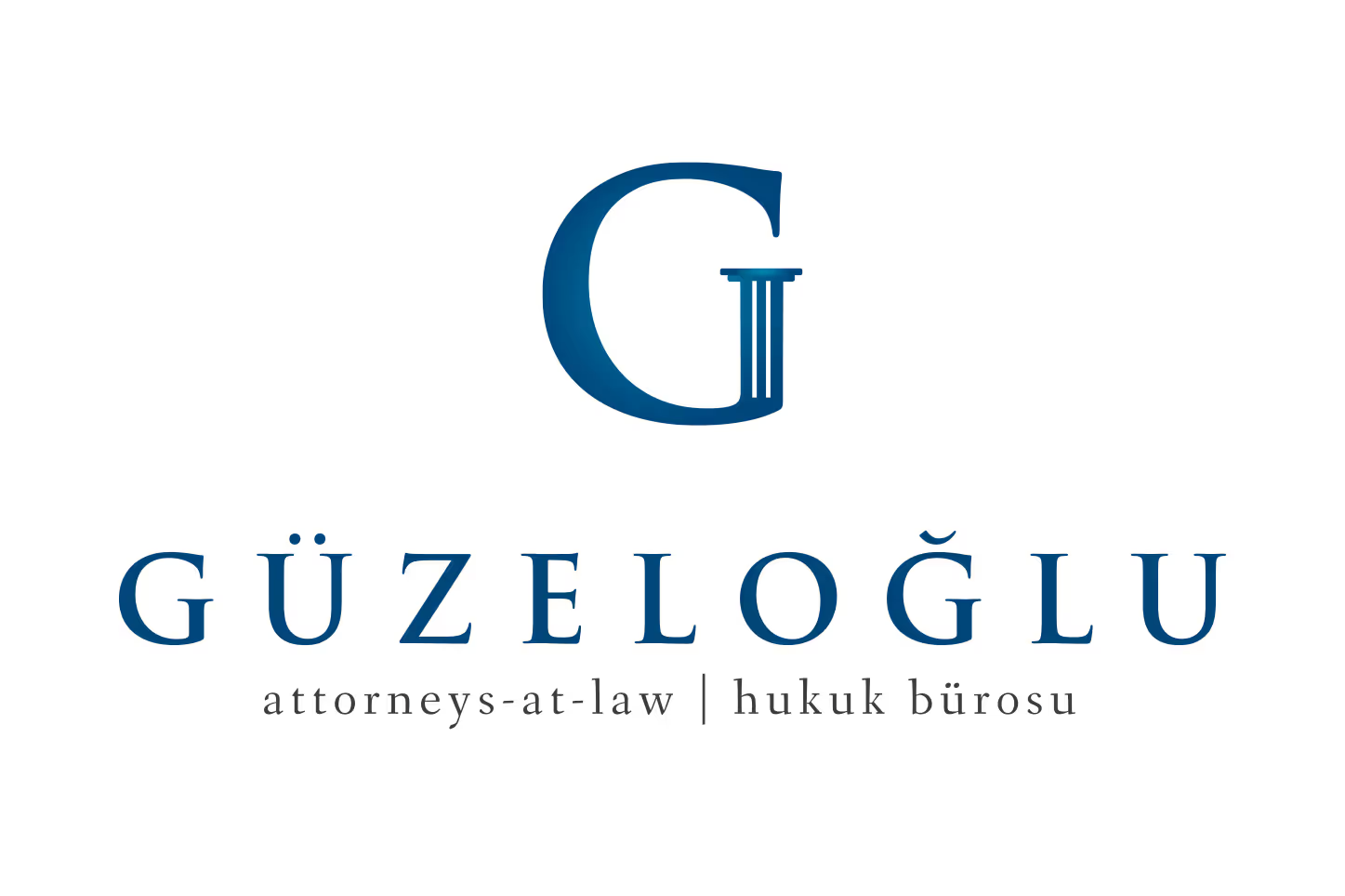
Guzeloglu Attorneys at Law is a premier law firm in Istanbul offering effective Debt Collection services in Turkey, established in 2015, and recognized for its innovative solutions, cost-effective approach, and memberships in the Union of the Turkish Bar Associations and Istanbul Bar Association.

CBC Law Firm is a premier law firm in Besiktas offering effective Debt Collection services in Türkiye, recognized by Chambers & Partners and The Legal 500, founded in 2020, and serving clients across the UK, US, Canada, and beyond.

Gonen Law Office is a premier law firm in Etimesgut offering effective Debt Collection services in Turkey, established in 1999, renowned for its international expertise and recognized through prestigious awards and memberships, making it the go-to partner for debt recovery.

Kurucuk & Associates is a premier law firm in Istanbul offering effective debt collection services in Türkiye, renowned as the go-to partner for debt recovery since 2014, with accolades like the Turkey Government Award and membership in the Istanbul Bar Association, serving clients across 12 countries.

Ateskan Law is a premier law firm in Bornova offering effective Debt Collection services in Turkey, positioning itself as the go-to partner for debt recovery with a foundation in 2017, membership in the İzmir Bar Association, and operations across eleven European countries.





.svg)

.webp)
.png)

.png)
.svg)












.svg)

